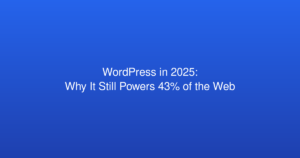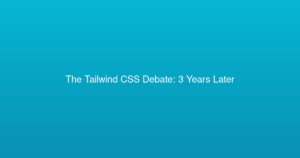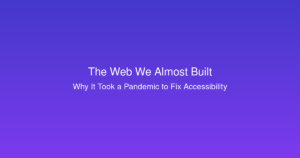Claude vs ChatGPT: A Developer’s Honest Comparison
After months of using both AI assistants for coding, here’s the real difference between Claude and ChatGPT.
Claude vs ChatGPT: A Developer’s Honest Comparison
Published: June 11, 2025
I’ve been using AI coding assistants for over two years now, and the question I get most often is: “Which one should I use?” It’s like asking whether you prefer coffee or tea—the answer depends on what you’re trying to accomplish and personal preferences that go deeper than technical specs.
After spending the last six months using both Claude and ChatGPT daily for everything from debugging WordPress themes to explaining complex APIs to clients, I have some thoughts. Spoiler alert: they’re both excellent, but in different ways.
The Code Quality Battle
Let’s start with what matters most: the code. Claude consistently produces cleaner, more readable code with better documentation. When I ask it to build a WordPress custom post type, I get properly formatted PHP with inline comments explaining what each hook does.
ChatGPT is faster and more creative with solutions, but sometimes too creative. It’ll suggest elegant one-liners that work perfectly but would confuse my junior developers. Claude tends to write code that a team can maintain.
Example: I asked both to create a custom WordPress meta box. ChatGPT gave me a working solution in 30 seconds. Claude took 45 seconds but included proper nonce verification, capability checks, and sanitization functions. Guess which one I actually used in production?
Understanding Context
Claude wins the context game, hands down. I can paste an entire WordPress theme file and ask it to explain the architecture, and it’ll actually understand the relationships between different components. It grasps the bigger picture.
ChatGPT is more focused on the immediate problem. Ask it to debug a specific function, and it’s brilliant. But ask it to understand how that function fits into your overall application architecture, and it sometimes misses the forest for the trees.
This matters when you’re working on complex projects. Claude feels like a senior developer who understands the codebase. ChatGPT feels like a really smart intern who can solve any specific problem you give them.
The Speed Factor
ChatGPT is noticeably faster, especially with GPT-4 Turbo. When I’m in rapid prototyping mode, bouncing between ideas and testing concepts, ChatGPT keeps up with my chaotic thought process.
Claude is more methodical. It takes time to consider the question, provides more thorough responses, and asks clarifying questions when my request is ambiguous. This is great for complex problems but can feel slow when I just need a quick regex pattern.
Explaining Complex Concepts
Here’s where Claude really shines: explaining things to non-technical people. When a client asks why their WordPress site needs security updates, Claude can explain it without being condescending or overly technical.
ChatGPT tends to assume technical knowledge or goes too deep into implementation details. Claude finds that sweet spot where the explanation is accurate but accessible.
I’ve started using Claude to write client documentation and ChatGPT for internal technical specs. Different tools for different audiences.
The Debugging Experience
Both are excellent at debugging, but in different ways. ChatGPT is like pair programming with someone who has encyclopedic knowledge—it’ll spot edge cases and suggest optimizations you hadn’t considered.
Claude approaches debugging more systematically. It’ll walk through the code logically, explain what each part should do, and identify where reality diverges from expectation. It’s particularly good at spotting WordPress-specific issues like improper hook usage or security vulnerabilities.
Learning and Teaching
If you’re learning to code, Claude is the better teacher. It explains not just what to do, but why you should do it that way. The responses feel more educational.
ChatGPT is better when you already know what you’re doing and just need quick answers. It’s like Stack Overflow, but it actually understands your specific situation.
API and Integration Work
For REST API development and third-party integrations, ChatGPT has been more reliable in my experience. It seems to have more up-to-date knowledge of API changes and better understanding of authentication flows.
Claude is more cautious with API recommendations, which can be good or frustrating depending on your needs. It’ll warn you about rate limits and security considerations that ChatGPT might not mention.
The Frustration Factors
ChatGPT sometimes suffers from what I call “confident wrongness.” It’ll give you a solution that sounds perfect but doesn’t actually work. The confidence in the response makes it harder to spot the error.
Claude occasionally overthinks simple problems. Ask for a basic contact form, and you might get a response about data validation, security considerations, and accessibility requirements. All important, but sometimes you just need the form.
Cost and Access
ChatGPT Plus at $20/month is straightforward. Claude’s pricing is more complex but generally more expensive for heavy usage. If you’re using these tools professionally, the cost difference probably doesn’t matter much.
ChatGPT has better mobile apps and more integration options. Claude’s web interface is cleaner but less flexible.
My Current Workflow
I use both, depending on the task:
– **Claude** for: Architecture planning, client communication, code reviews, documentation, complex debugging
– **ChatGPT** for: Quick solutions, API work, rapid prototyping, brainstorming, specific technical problems
Think of Claude as your thoughtful senior colleague and ChatGPT as your brilliant but sometimes impulsive peer. Both have their place in the toolkit.
The Verdict
If I could only choose one? Probably Claude, but it’s close. The code quality and contextual understanding make it more valuable for professional development work.
But honestly, the best approach is using both. They complement each other well, and the combined subscription cost is still less than hiring a junior developer for a day.
The real winner here isn’t Claude or ChatGPT—it’s us developers who suddenly have access to AI assistants that would have seemed like science fiction just a few years ago. We’re living in the future, and it’s pretty great.


